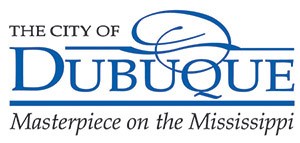
Human Rights Director
City of Dubuque
1 Positions
ID: 84287
Posted On 11/13/2025
Job Overview
-
Position Summary
-
GENERAL SUMMARY OF DUTIES: Under the general supervision of the City Manager, this position is designed to administer and enforce the city’s human rights ordinances, policies, and programs in accordance with state and federal civil rights laws. The Director will serve as a key advisor to city leadership, oversee complaint investigations, develop community education initiatives, and collaborate with stakeholders to eliminate unlawful discrimination in housing, employment, public accommodations, credit, and city services. The Director will lead the development of initiatives that create an organizational culture of respect and belonging. This valuable team member will be an integral part of supporting efforts to become a high-performance, data-driven, and outcome-focused organization with the ultimate goal of creating a community of belonging and organization of choice, through planning, partnerships, and people. The individual should have strong emotional intelligence and a continuous improvement mindset which will add value to our organization and community.
DISTINGUISHING FEATURES OF THE CLASS: Work in this class includes responsibility for executive leadership and administrative oversight in directing the activities of the Office of Human Rights. The employee in this class reports to the City Manager and serves as the staff liaison to the Human Rights Commission. Work in this class includes providing high level leadership, administrative, and financial direction. Extensive leeway is granted for the exercise of independent judgement, initiative, discretion, and collaboration. The employee in this class establishes and maintains effective working relationships with other City employees, business and community groups, state and federal officials, representatives of the media, and the public. Work is reviewed by the City Manager through reports, conferences and results achieved.
-
Job Duties
-
JOB DUTIES:
- Monitor city programs for unintended consequences and outcomes that impact fair access for all.
- Prepare agenda items and reports for Human Rights Commission Meetings, consulting with Human Rights Commission Chair.
- Explain regulations, policies, or procedures.
- Establish organizational guidelines or policies that support fairness, respect, and belonging in City operations and community outreach.
- Monitor organizational processes that help identify and remove barriers that prevent people from fully participating in City services, programs and civic life.
- Facilitate workshops and train employees on topics related to advancement of an organizational culture that prioritizes belonging, respect, and emotional intelligence.
- Develop and advocate for organization programs, performance indicators and progress benchmarks to ensure accountability towards organizational belonging goals related to employee relations, service delivery, and community/partner engagement.
- Lead initiatives that foster a sense of belonging across City departments and in the broader community.
- Serve as an internal advisor to City leadership on strategies to create a welcoming and belonging work environment.
- Develop and implement community engagement strategies that amplify underrepresented voices and encourage participation.
- Represent the City in public forums, community dialogues, and collaborative initiatives focused on belonging and community well-being.
- Be familiar with the Human Rights Commission and assist them in achieving their duties as assigned in the Ordinance.
- Assess barriers and analyze data measuring the City’s progress on creating a sense of belonging for employees and community members.
- Facilitate discrimination complaints in collaboration with the City Attorney’s office.
- Advise/coach and hold departments accountable for using data to identify issues of institutional and structural barriers to fair access, evaluating department policies and procedures, and providing training and consultation as needed.
- Conduct regular national best practices research and comparative analyses to ensure the City’s continued progress toward goals related to belonging and inclusion.
- Confer with representatives of Federal, State and local agencies, elected officials and community groups on human rights issues and activities.
- Review legislative issues relating to human rights, and attend meetings of professional organizations.
- Evaluate external complaint trends to identify community-wide trends needing a response.
- Provide commissioner orientation and training.
- Prepare departmental budgets and policy recommendations.
- Supervise employees and oversee recordkeeping activities.
KNOWLEDGE, SKILLS AND ABILITIES:
- Administration and Management - Skills in strategic planning, resource allocation and coordination of people and resources. Knowledge of finance, planning, marketing, budgeting, practices, techniques, procedures, and administration.
- Leadership – Ability to independently, collaboratively, and proactively lead, take initiative, and multitask. Ability to work with a variety of individuals and groups in a constructive and respectful manner while appreciating the unique contributions that bring together the talents of people across multiple identities and life experiences.
- Team Development, Community Collaboration/Engagement, and Partnerships – Skills in development of teams and partners identifying collaboration opportunities. Developing community relationships across various demographics. Create and implement a shared vision.
- Interpersonal, Oral and Written Communication – Listening to others for comprehension. Communicate through public speaking and writing clearly with awareness of the audience. Figuring out how to use new ideas or things while listening to others, not interrupting, and asking good questions through active learning and listening. Ability to understand legislative and legal language.
- Active Listening — Giving full attention to what other people are saying, taking time to understand the points being made, asking questions as appropriate, and not interrupting at inappropriate times. Understanding the implications of new information for both current and future problem-solving and decision-making.
- Law and Government: Knowledge of laws, legal codes, court procedures, precedents, government regulations, executive orders, agency rules, and the democratic political process.
- Communications and Media — Knowledge of media communication, and techniques and methods. This includes alternative ways to inform and entertain via written, oral, and visual media.
- Data Collection, Analysis and Clerical - Record keeping abilities. High level ability to work with computers and tech, software programs, maintain and prepare reports, design fliers and forms. Working knowledge of computer hardware and software, including Office 365 Suite.
- Critical Thinking, Analysis, Complex Problem Solving and Decision Marking – Analyzing problems, thinking about the pros and cons of different ways to solve a problem and identify/implement solutions. Figuring out how a system/process should work, measuring how well it’s working and how to improve it to arrive at equitable outcomes. Use deductive and inductive reasoning to solve problems. Create new and original ideas.
- Organizational Systems and Structure Analysis – Knowledge of how systemic and structural policies and procedures impact outcomes; and skill at making recommendations to promote organizational culture change proportional opportunity equitable and unbiased changes.
- Information Technology – Ability and willingness to learn and use new skills and knowledge brought about by rapidly changing information and/or technology. Ability to operate a personal computer using standard or customized software applications appropriate to assigned tasks.
- Emotional Intelligence – Ability to understand and navigate one’s own emotions while being attuned to the emotions of others. Demonstrates empathy, self-awareness, and sound judgment to build trust, foster collaboration, resolve conflict, and maintain positive working relationships in a variety of situations.
-
Qualifications
-
MINIMUM QUALIFICATIONS:
- Bachelor’s degree from an accredited college or university in Public Administration, Political Science, Education, Sociology, Ethnic Studies, Communication or a related field; and
- At least one year of professional experience in government, community or educational programs focused on advancing fair access, representation, and/or community engagement.
- Or any equivalent combination of experience and training which provides the essential knowledge, skills and abilities.
PREFERRED QUALIFICATIONS:
- Advanced degree in Public or Business Administration, Political Science, Education, Sociology, Ethnic Studies, Communications, Law or related field.
- Additional years of related professional experience.
- Experience in local government providing services to community members from a wide variety of backgrounds
- Bilingual or multilingual fluency.
-
Supplemental Information
-
RESIDENCY REQUIREMENT: Employee shall establish their principal place of residence within fifty (50) miles of their place of employment as soon as practicable after appointment, but no later than two years from date of hire.
WORK ENVIRONMENT: Duties include occasional irregular hours and working nights, weekends and holidays. Work is performed in a variety of settings including offices, community meetings, businesses, classrooms, and homes in the community. Frequent independent travel throughout the city is required.
SUPERVISORY STATUS: Administrative
FLSA (OVERTIME) STATUS: Exempt

 My Account
My Account






